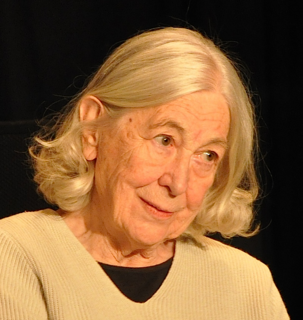
Rade Šerbedžija is a Croatian actor, director and musician. He is known for his portrayals of imposing figures on both sides of the law. He was one of the best known Yugoslav actors in the 1970s and 1980s. He is internationally known mainly for his supporting roles in Hollywood films such as Harry Potter and the Deathly Hallows: Part 1, X-Men: First Class, The Saint, Mission: Impossible 2; his role as Boris the Blade in Snatch; and for his recurring role as former Soviet Army General Dmitri Gredenko in Season 6 of TV action series 24.
Vojteh Ravnikar was a Slovenian architect.
Among the modes of expression of the culture of Slovenia, a nation-state in Central Europe, are music and dance, literature, visual arts, film, and theatre. A number of festivals take place, showcasing music and literature.
Tomi Janežič is a Slovenian theatre director, professor at the Academy for Theatre, Radio, Film, and Television (AGRFT) in Ljubljana, Slovenia, and a psychodrama psychotherapist. He is also one of the founders and the artistic director of the Studio for Research on the Art of Acting which runs its activities mostly at Krušče Workcenter for Artistic Research, Creation, Residency and Education in Krušče, Slovenia.

Žarko Petan was a Slovenian writer, essayist, screenwriter, and theatre and film director. He is best known as a writer of aphorisms.
Janko Kastelic is a Canadian–Slovene conductor who was from September 2008 until June 2011 the music director for the Opera House of Maribor, Slovenia.

Radko Polič was a Slovenian theatre, television and film actor.
Zlatko is a South Slavic masculine given name. The name is derived from the word zlato meaning gold with hypocoristic suffix -ko common in South Slavic languages.

The Ljubljana Slovene National Theatre Drama, or the Slovene National Theatre Drama in Ljubljana, is the national theatre in Ljubljana, Slovenia, best known for its conservative repertoire, including classical European dramatic texts and selected contemporary non-commercial European and Slovene ones. Its seat is the Ljubljana Drama Theatre to the southeast of the Slovene Museum of Natural History and southwest of the University of Ljubljana, at 1 Erjavec Street. It is an Art Nouveau building originally of the city's German Theatre.
Ljubljana City Theatre is the second theatre building and company of Ljubljana after the Ljubljana branch of the Slovene National Theatre.

The Ljubljana Slovene National Theatre Opera and Ballet, or shortly Ljubljana SNG Opera and Ballet, is Slovenia's national opera and ballet company. Its seat is the Ljubljana Opera House at 1 Župančič Street in Ljubljana. The Ljubljana Slovene National Theatre Opera and Ballet was founded in 1918. It is now a subsection of the Slovene National Drama Theatre in Ljubljana (Slovensko narodno gledališče and has about 50 dancers. Since 2013, its director has been the lawyer Peter Sotošek Štular, and its artistic director the opera stage director Rocc.
Alen Jelen is Slovenian theatre director, radio director, dramaturge, actor in Ljubljana, Slovenia. He is born 1970 in Maribor and lives and works in Ljubljana.

Tone Partljič is a Slovene writer, playwright and politician. Between 1990 and 2004 he was a member of the Slovenian National Assembly, from 1994 as a member of the LDS party. He was also president of the Slovene Writers' Association between 1983 and 1987.

Frane Milčinski was a Slovene poet, satirist, humorist and comedian, actor, children's writer, and director. He is considered one of Slovenia's foremost 20th-century satirists and entertainers.

Jure Ivanušič is a Slovene theatre and film actor, director, playwright, concert pianist, composer, chansonnier and translator.

Polde Bibič was a Slovenian stage and film actor, a writer, and an academic professor, best known for his role in the film Flowers in Autumn and his work in theater, Bibič was a recipient of several top awards in the field of arts in Slovenia.
Performing arts of Slovenia are shaped by a number of Slovenian actors and actresses, dancers, theatre directors, and theatre managers. Several professional and a number of amateur community theatres operate on the repertory system in Slovenia.
Ana Lasić is a Slovenian screenwriter and playwright of Serbian descent.
Jernej Šugman was a prominent Slovenian theater, television and film actor.

Štefka Drolc, full name Štefanija Ana Drolc, was one of the most widely recognised Slovenian theatre and film actresses.










